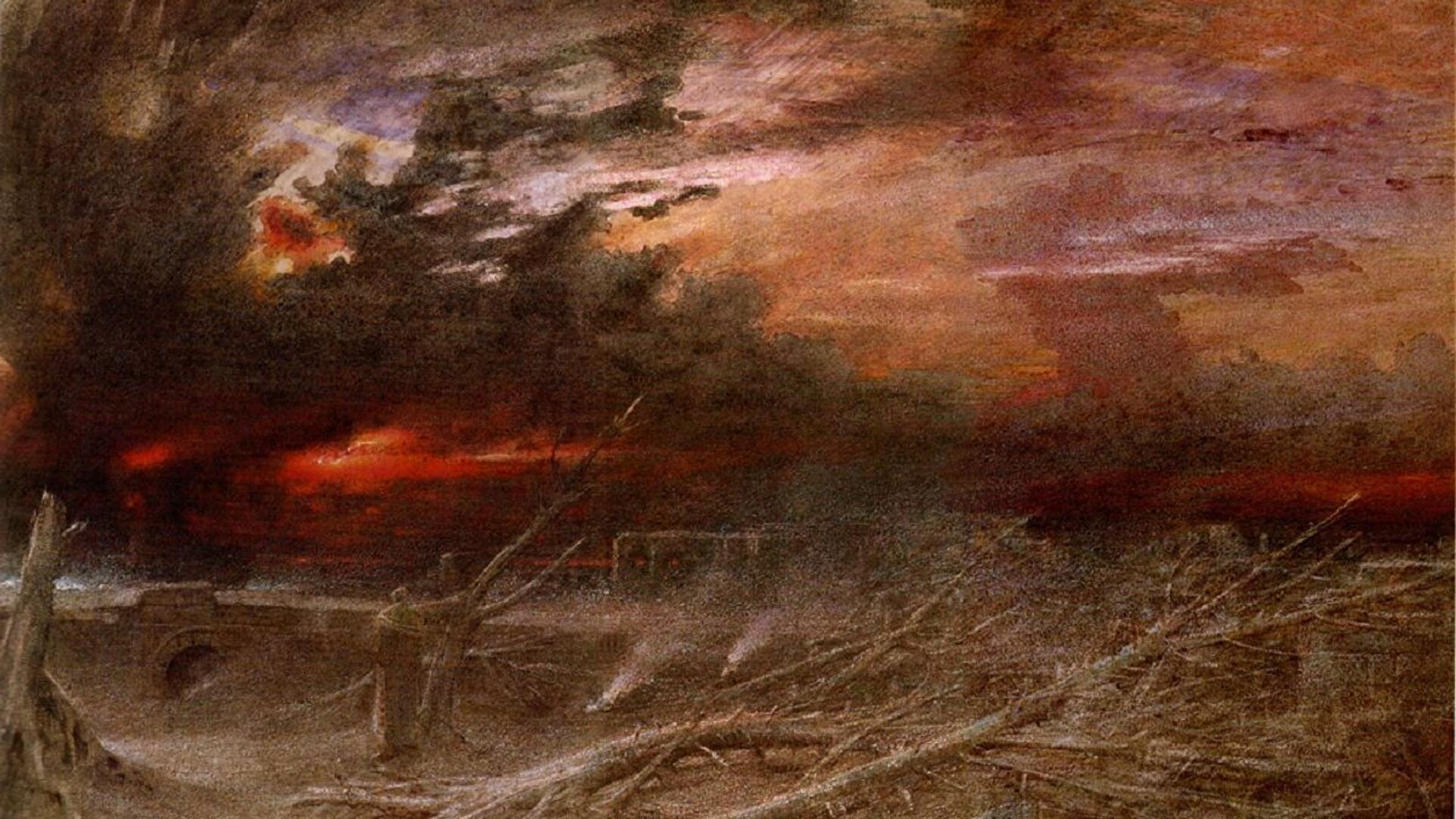https://sputnikglobe.com/20211210/what-were-seeing-is-very-serious-prospect-of-impending-mass-extinction-event-mulled-by-scientist-1091421540.html
'What We're Seeing is Very Serious': Prospect of Impending Mass Extinction Event Mulled by Scientist
'What We're Seeing is Very Serious': Prospect of Impending Mass Extinction Event Mulled by Scientist
Sputnik International
The scientist reportedly estimated the “critical threshold for carbon in the ocean” at about 300 gigatons in a century, whereas up to 500 gigatons of carbon... 10.12.2021, Sputnik International
2021-12-10T16:44+0000
2021-12-10T16:44+0000
2021-12-10T16:44+0000
science & tech
carbon
ocean
mass extinction
https://cdn1.img.sputnikglobe.com/img/107963/78/1079637850_0:34:1200:709_1920x0_80_0_0_91bd8723491e93e2064002d9422cd426.jpg
With vast amounts of carbon being pumped by humans into Earth’s atmosphere and oceans, a new mass extinction event may be looming on the horizon, professor of geophysics at MIT named Daniel Rothman warned.According to The Times of Israel, Rothman explained that the amount of carbon may, in the not so distant future, pass a threshold and cause chaos on our planet.Rothman postulates that, while in the long run – “on a scale of around 10,000 years,” as the newspaper puts it – what matters is the rate at which carbon is being added to the atmosphere, in the relatively short-term perspective – “a century or two” – it is all about the amount of carbon.Now, Rothman estimates the “critical threshold for carbon in the ocean” at about 300 gigatons in a century, while the amount of carbon to be added there by 2100 may reach up to 500 gigatons.The scientist noted, however, that it is hard to say at this point whether humanity already entered a mass extinction event, which do not happen overnight and usually unfold over thousands of years.
https://sputnikglobe.com/20211105/sweden-to-fuel-aircraft-with-carbon-dioxide-recycled-in-reverse-photosynthesis-1090491783.html
Sputnik International
feedback@sputniknews.com
+74956456601
MIA „Rosiya Segodnya“
2021
News
en_EN
Sputnik International
feedback@sputniknews.com
+74956456601
MIA „Rosiya Segodnya“
Sputnik International
feedback@sputniknews.com
+74956456601
MIA „Rosiya Segodnya“
science & tech, carbon, ocean, mass extinction
science & tech, carbon, ocean, mass extinction
'What We're Seeing is Very Serious': Prospect of Impending Mass Extinction Event Mulled by Scientist
The scientist reportedly estimated the “critical threshold for carbon in the ocean” at about 300 gigatons in a century, whereas up to 500 gigatons of carbon may be added there by year 2100.
With vast amounts of carbon being pumped by humans into Earth’s atmosphere and oceans, a new mass extinction event may be looming on the horizon, professor of geophysics at MIT named Daniel Rothman warned.
According to The Times of Israel, Rothman explained that the amount of carbon may, in the not so distant future, pass a threshold and cause chaos on our planet.
“Every time there has been a major event in the history of life, there has also been a major perturbation of the environment. These things tend to come together,” he said.
Rothman postulates that, while in the long run – “on a scale of around 10,000 years,” as the newspaper puts it – what matters is the rate at which carbon is being added to the atmosphere, in the relatively short-term perspective – “a century or two” – it is all about the amount of carbon.

5 November 2021, 07:29 GMT
Now, Rothman estimates the “critical threshold for carbon in the ocean” at about 300 gigatons in a century, while the amount of carbon to be added there by 2100 may reach up to 500 gigatons.
The scientist noted, however, that it is hard to say at this point whether humanity already entered a mass extinction event, which do not happen overnight and usually unfold over thousands of years.
“Mass extinctions represent some type of cascade of positive feedbacks that cause a global ecosystem crash. What we’re seeing today is very serious; however, I don’t know how much is necessary to move us to the tipping point that would create a global catastrophe for the global ecosystem,” he explained. “I can’t say we haven’t, I just don’t know how to say when we would.”




